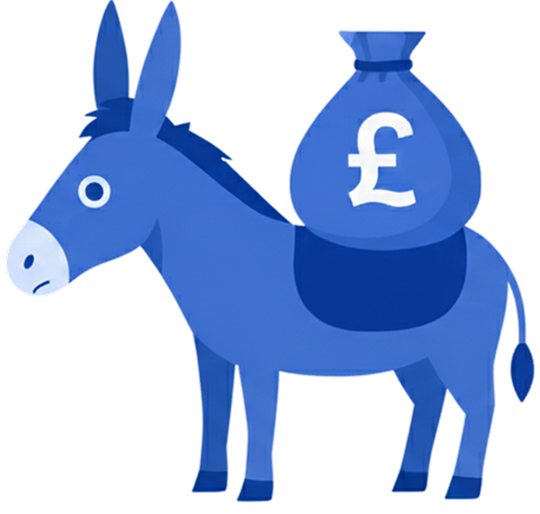
Money Mules
What is a Money Mule and why you should be careful not to become one
You may have heard of ‘Money Muling’, this is a type of money laundering that is becoming very frequent, especially targeting individuals with little cash.
We put together some information on how you can spot signs and what you can do if this happens to you.
What is a Money Mule?
Fraudsters and criminals normally use someone else’s account to launder money. If they put the money straight into their own bank, the police would quickly find them.
Scammers prey on those who are low on funds to act as ‘Money Mules’. This means you allow money to be transferred through your bank account in exchange for payment.
Hard-up students are often targeted, with job adverts and spam emails offering ‘easy money’. You’ll be asked to provide your bank details, receive a payment into your account and then either withdraw it in cash or transfer it to another account.
It might seem like a harmless way to increase your income, but the money being transferred is stolen and used to fund organised crime.
It is a crime to be a Money Mule, even if you don't realise you are doing it. This can get you into serious trouble. If you’re caught, you could get up to 14 years in prison. Your bank accounts will be closed, you’ll have problems applying for a loan, a mortgage or even a mobile phone contract.
To learn more about the consequences of becoming a money mule and what the proceeds of money laundering are used for, check out the Don’t Be Fooled website and this animated video.
https://www.moneymules.co.uk/
Quiz
What Monese can do to help you spot signs:
To protect you and other customers, we’re carefully monitoring payments for fraud.
We’d like to give you some useful tips:

Step 1: We will ask you to confirm the reason for your payment:
- Unexpected request
- Paying friends & family
- Buying goods and services
- Paying bills
- Making a large purchase
- Making investments
- Cryptocurrency

Step 2: Stop & Think:
If this is a scam you could lose your money.
Sign of a scam:
- Is someone telling you what to do?
- If someone has told you to mislead us about the reason for your payment and choose the wrong payment type, stop. This is a scam.
- How did you find out about the goods/ services? Fraudsters may advertise products, goods or services on social media or other online marketplaces. In some cases, they even set up and use legitimate-looking websites.
- Do you really know them? Fraudsters may use social media to build up a relationship with you to gain your trust before asking you to send them money.

Step 3: Self Defense:
Take action to ensure you don't lose money.
What can you do to protect yourself?
- Stop & think, does this seem right? Is the offer for a limited time or feel too good to be true?
- Don't proceed if you are asked to pay by bank transfer rather than using a more secure way to pay, for example, a credit or debit card, which provides more protection against fraud.
- Don't proceed if you are asked to make the payment away from the usual payment platform.
- Beware of false websites and reviews. Thoroughly research the seller online before making a purchase. For a high-value item like a car, make sure you physically see it before making a payment.
- Visit our fraud centre for further guidance on how to undertake the required checks before proceeding.
Lorem ipsum dolor sit amet, consectetur adipiscing elit, sed do eiusmod tempor incididunt ut labore et dolore magna aliqua. Ut enim ad minim veniam, quis nostrud exercitation ullamco laboris nisi ut aliquip ex ea commodo consequat. Duis aute irure dolor in reprehenderit in voluptate velit esse cillum dolore eu fugiat nulla pariatur.
What can you do if you suspect this happened to you:
Check out the Don’t Be Fooled website from UK Finance and Cifas for more information and support, stop speaking to the person you think is trying to scam you, block their account, contact and report them to Action Fraud via their website or contact 0300 123 2040. In an emergency, call 999.
You can also contact the HMRC Fraud Hotline quoting ref: IFMM23.
If you see it online, click the button to report it to the social media companies to get it taken down.
Lorem ipsum dolor sit amet, consectetur adipiscing elit, sed do eiusmod tempor incididunt ut labore et dolore magna aliqua. Ut enim ad minim veniam, quis nostrud exercitation ullamco laboris nisi ut aliquip ex ea commodo consequat. Duis aute irure dolor in reprehenderit in voluptate velit esse cillum dolore eu fugiat nulla pariatur.





